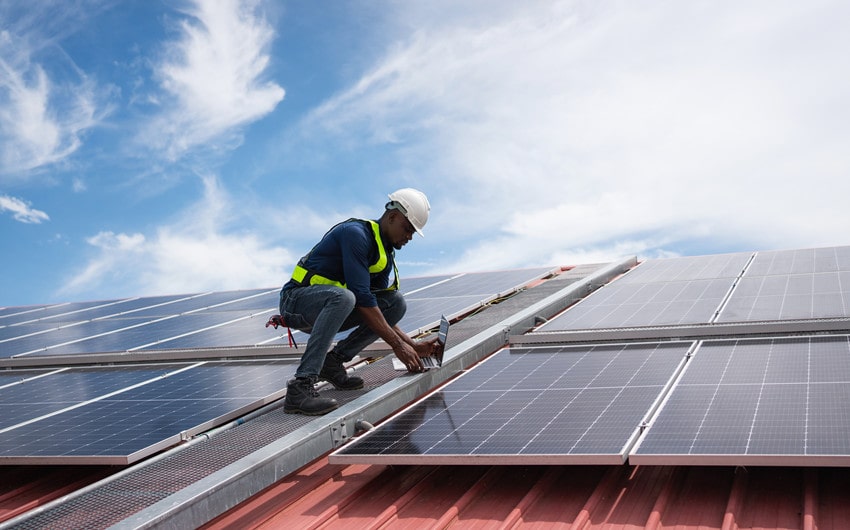Are Solar Panels Worth It in 2025? A Complete Guide for Homeowners
Energy costs are rising, extreme weather events are becoming more common, and more people are looking for ways to reduce their environmental impact. Against this backdrop, solar panels have emerged as one of the most popular solutions for sustainable and independent energy. But are they really worth the investment in 2025?
This guide will walk you through how solar panels work, what benefits they offer, the challenges to be aware of, and whether installing them makes sense for your home or lifestyle.
How Solar Panels Work
Solar panels convert sunlight into electricity through photovoltaic (PV) cells. When sunlight hits these cells, they generate a flow of electrons, creating usable energy.
The electricity can be:
- Used directly in your home to power appliances.
- Stored in batteries for later use.
- Sent back to the grid in exchange for credits (where net metering is available).
The technology has matured dramatically over the last decade, making solar panels more efficient, affordable, and accessible than ever before.
Key Benefits of Solar Panels
1. Lower Energy Bills
Once installed, solar panels can offset a significant portion of your monthly electricity costs. Depending on your location and system size, you could reduce bills by 50–90%.
2. Energy Independence
With panels and a home battery system, you’re less vulnerable to outages and price hikes. For many, this peace of mind is a major motivation.
3. Environmental Impact
Solar panels produce clean energy with no greenhouse gas emissions. Over their lifetime, a single residential system can offset tons of CO₂.
4. Increased Property Value
Homes equipped with solar installations often sell faster and at higher prices. Buyers see them as upgrades, similar to renovated kitchens or modern HVAC systems.
Challenges to Consider
Upfront Costs
While prices have dropped significantly, installation still requires a notable initial investment. Government incentives and financing can help reduce the burden.
Weather Dependence
Cloudy days and shorter winter hours mean production varies seasonally. Pairing solar panels with batteries ensures consistent supply.
Space Requirements
You’ll need sufficient roof or ground space with good sun exposure to maximize efficiency. Shaded areas reduce performance.
Maintenance
Though minimal, panels should be cleaned periodically and checked for damage. Proper care helps them last 20–25 years or more.
Are Solar Panels Right for You?
Consider Your Location
- Sunny climates like Arizona, California, or Nevada deliver maximum output.
- Cloudier regions like the Pacific Northwest still benefit but may see longer payback periods.
Evaluate Energy Consumption
Households with high electricity usage (HVAC, EV charging, large appliances) save the most money.
Check Incentives and Policies
Tax credits, rebates, and net metering can significantly impact ROI. Policies differ by state or country.
Everyday Applications Beyond Homes
Solar panels aren’t just for rooftops anymore. Their uses now span:
- Off-grid cabins: Power remote living without relying on utility lines.
- RVs and boats: Keep essential devices running during travel.
- Emergency preparedness: Provide reliable backup during natural disasters.
- Portable living: Foldable solar panels make camping or outdoor work more sustainable.
Solar Panels vs. Alternatives
- Gas Generators: Reliable but noisy, polluting, and dependent on fuel.
- Wind Turbines: Effective in specific regions but less practical for most households.
- Grid Power Alone: Convenient but increasingly expensive and less resilient to blackouts.
Solar panels stand out as a clean, scalable solution that balances cost, efficiency, and sustainability.
Maximizing the Value of Solar Panels
- Combine with Energy Storage: Store surplus electricity to use at night or during outages.
- Upgrade to Energy-Efficient Appliances: Lower overall demand and maximize your system’s impact.
- Monitor Your System: Apps and smart monitoring tools help you track output and performance.
- Plan for Expansion: Start with a smaller system and scale up as your needs grow.
Future of Solar Panels
Advancements in panel efficiency, transparent solar glass, and integration with smart grids will make solar even more attractive. Prices are expected to continue declining while performance improves, ensuring broader adoption worldwide.
Conclusion
So, are solar panels worth it in 2025? For most homeowners, the answer is a resounding yes. They provide financial savings, energy independence, and a tangible way to contribute to a more sustainable future. While there are upfront costs and considerations, the long-term benefits far outweigh the drawbacks.
Whether you’re powering a family home, an RV, or preparing for emergencies, solar panels offer flexibility and reliability that few other solutions can match. Investing in them today isn’t just about saving money—it’s about securing your energy future.







